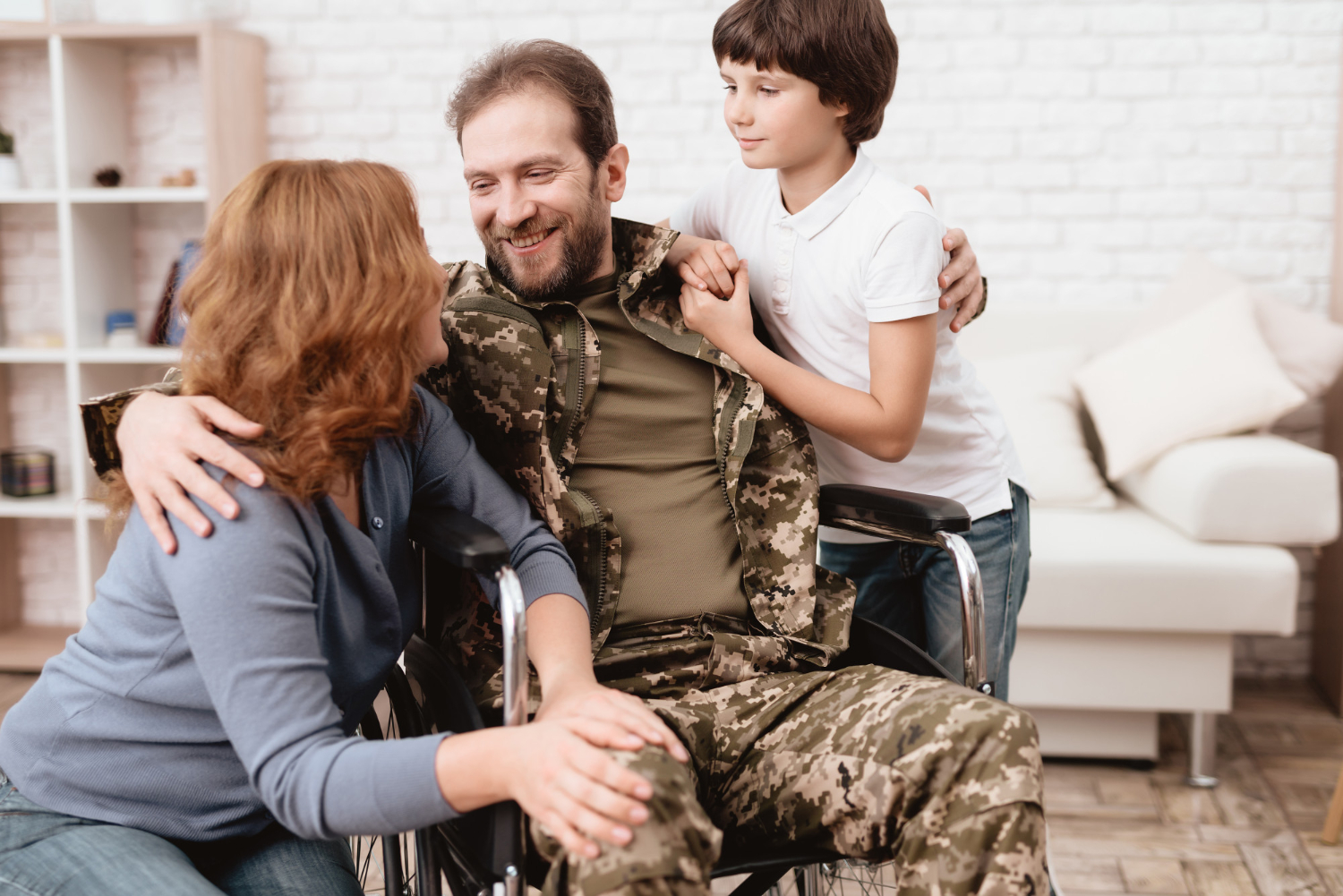Wherever you are at the stage of recovery from addiction, understanding the variety of treatment options for mental health conditions can make a significant difference in your journey.
Continue readingHow to Stay Sober: Alcohol Relapse Prevention
Relapse prevention is essential to maintaining long-term sobriety and may open paths to a more rewarding, health-conscious life.
Continue readingIndependence Day Tribute: Helping Veterans Overcoming Alcoholism and Addiction
Alcoholism in the Workplace: Addressing Alcohol Abuse in the Work Environment
Fostering a culture of wellness in the workplace has become paramount for organizations aiming to thrive. And amidst the several challenges that these workplaces face, one issue that demands attention is substance abuse and alcoholism in the workplace.
Continue readingDetox Treatment Program: Life After Addiction
Detox treatment program is the process of eliminating harmful substances from the body, setting the stage for healing, and preventing relapse.
Continue readingStrong and Steady: Celebrating Men’s Health Month 2024
Men’s Health Month aims to highlight the often-overlooked health issues that men face, serving as a reminder to prioritize their health, address health issues, and promote preventative care initiatives.
Continue readingFamily Dynamics in Recovery: Healing and Rebuilding Trust
Mindfulness and Meditation for Veterans: Practices to Enhance Mental Health
As veterans go beyond the battlefield, they face formidable foes against their mental health. Several mental health challenges, such as post-traumatic stress disorder (PTSD), depression, and anxiety, can torment their transition back to civilian life. However, in these dark times, mindfulness and meditation techniques emerge as rays of hope. In this blog post, we’ll explore how these practices can serve as a holy grail for veterans’ mental health on the path toward a successful recovery journey.
Mindfulness and Meditation in a Nutshell
Before we delve deeply into the tips on how to apply these techniques to veterans’ well-being, it’s important to know the essence of mindfulness and meditation. Mindfulness is a practice that involves purposefully having awareness of the present moment. It’s about acknowledging and accepting the presence of one’s feelings, thoughts, and bodily sensations. Meditation is a mindfulness technique that encompasses a range of practices, such as guided imagery and body scans, with the purpose of training the mind to increase self-awareness and emotional regulation, achieving a state of calm and clarity. Practicing mindfulness and meditation techniques can lead to improvements in stress management and foster a smoother healing journey.
Mental Challenges Among Veterans: What’s It’s Like
More than the physical injuries from their life of service, veterans also grapple with invisible wounds that torment the mind. Mental health challenges such as PTSD, depression, and anxiety can make the path to recovery even more arduous. Oftentimes, these challenges exist with other conditions, like how PTSD and chronic pain usually come together, which can further complicate mental health management. Some even suffer from substance use disorders (SUDs) while having these mental health concerns. Traditional mental health services may fail to address these unique needs, which highlights the importance of alternative approaches such as mindfulness and meditation.
Benefits of Mindfulness and Meditation for Veterans
Mindfulness and meditation provide several benefits that can better resonate with veterans’ experiences. Here are some of the benefits:
- Reduce stress. Studies show that meditation techniques may help reduce the symptoms of PTSD. By fostering self-awareness and a sense of presence, mindfulness can lessen the persistent grip of stress.
- Regulate emotions. With mindfulness, veterans may learn to navigate turbulent emotions with grace and resilience, finding calm and peace in the process. It can also help veterans deal with anxiety and depression.
- Improve sleep quality. Increased stress and anxiety may prevent veterans from getting a good night’s rest. Meditation techniques may allow you to be more aware of your thoughts and to be able to let go of stressors and anxiety-inducing thoughts that may impede you from having restorative sleep.
- Increase self-awareness. Mindfulness and meditation techniques aid veterans in exploring the depths of their inner minds and thoughts, which can promote self-discovery and compassion in recovery.
Tips for Incorporating Mindfulness into Your Daily Routine
Embarking on a mindfulness journey doesn’t need to be unnerving. Here are some ways to effectively incorporate mindfulness and meditation into your daily routine:
- Start with simple exercises. Breathing exercises and mindful body scans are simple yet profound exercises that can be done anytime to foster a sense of calm, offering respite from chaotic thoughts.
- Consistency is key. Establish a routine that works best for you. Setting a specific time each day for mindfulness practices will create a habit that can seamlessly fit into your daily routine.
- Combine mindfulness with physical activity. Practicing mindfulness techniques with exercises such as yoga and walking can help bolster its mental health benefits and make the process more fun.
- Personal mindfulness practice. Just like each recovery journey is unique to each veteran, mindfulness is also personal. Finding techniques that resonate deeply with you and address your unique experiences as a veteran in the most effective way is highly recommended.
Practice Mindfulness at the California Recovery Center
As veterans navigate through the complex journey to recovery, mindfulness and meditation shine a ray of hope amidst these dark times. To cultivate presence and achieve resilience, veterans can access mindfulness resources through different treatment services. Here at the California Recovery Center, we stand in solidarity with you about the importance of these mindfulness techniques as powerful tools for a successful recovery for veterans. If you or your loved one is a veteran seeking treatment centers and recovery facilities, our doors are open to support you. With our Veteran Care Program, we offer veteran-specific treatment services for a journey of healing and transformation for our heroes returning from the battlefield.
If you wish to learn more about our services, feel free to reach out to us today at (916) 848-5744.
Peer Support: A Key Pillar in Veteran Mental Health Recovery
In the challenging world of mental health recovery after a life of active service, the solace of finding a support system is often a transformative force. Oftentimes, veterans may feel isolated during recovery, emphasizing the significance of peer support as a source of emotional stability, camaraderie, and shared experiences. Seeking treatment programs that offer peer support as part of their care regimen can have a profound impact on veterans’ mental health and their recovery journey.
Peer Support in Veteran Recovery: Why It Matters
Veterans in recovery often face unique challenges, making the path to healing more unique and complex. With peer support, it provides an avenue for veterans to prosper by creating a sense of belonging. Often, veterans may feel alone in their recovery journey, but peer support, helps break the stigma that seeking recovery treatment is a sign of weakness. Peer support is all about sharing stories and building connections with people whom you can relate to, enhancing resilience in dealing with mental health struggles, and moving towards a successful path of healing.
Empathy: Feelings of Understanding
It is beneficial to create a sense of understanding during the journey to recovery. For veterans, it is often a confusing transition from a time in active service to “normal” civilian life. Living a life that is different from the one you used to have might leave you with feelings of being lost and isolated, often marked with stress, depression, and anxiety. But with peer support, it creates a sense of solidarity, understanding, and comfort in knowing that others have walked a similar path as you.
Overcoming Stigma and Isolation
For veterans, having mental health issues is stigmatized as it blurs the image of being a face of strength, especially during their time of service. This leads many veterans to deal with these challenges in silence. Peer support can provide a safe space where veterans are heard and listened to without fear of judgment or discrimination. Opening discussions through peer support can help break down the barriers created by the stigma associated with seeking help, thereby reducing feelings of isolation and shame.
Navigating Challenges Together
Sharing experiences with peers during challenging times in the recovery journey is also a crucial role of peer support. Veterans exchange stories and strategies that they can relate to and resonate deeply with when engaging with fellow peers. This lays out a good foundation where veterans can inspire and encourage each other. Engaging with peers can help veterans manage stress, anxiety, and other mental health challenges as they find new coping strategies through discussions with other veterans, effectively navigating challenges together.
Fostering a Sense of Belonging and Community
One powerful aspect of peer support is the sense of belonging among veterans. With their unique set of experiences, veterans share a common language that civilians cannot fully comprehend. The bond formed from shared experiences produces a place where a deep and understanding connection can be felt, and in turn, it cultivates a community wherein veterans can express themselves without the fear of being misunderstood. This sense of camaraderie also builds trust among the veterans, strengthening their resilience and promoting their overall well-being.
You Are Not Alone: Peer Support at the California Recovery Center
In the journey to mental health recovery, peer support is like a ray of sunshine that provides hope and solidarity for veterans. By creating a sense of understanding, empathy, and community, peer support programs play a significant role in the lives of veterans as they navigate the challenging path toward reclaiming their lives. Here at the California Recovery Center, we believe that everyone is capable of leading successful and fulfilling lives. Our therapies include group sessions, allowing one to meet fellow veterans. So, if you’re a veteran in recovery struggling with mental health challenges, know that you are not alone. Feel free to reach out to us at (916) 848-5744. Together, we can overcome barriers, find strength in camaraderie, and build brighter futures for ourselves and for each other.
Healing Together: The Role of Family Support in Veteran Recovery
Supporting veterans through their recovery journey requires multiple efforts extending beyond the individual but also to their family and community. They often find themselves caught in the middle of their loved one’s struggles, looking for ways to support their recovery in hopes of restoring harmony within the family.
Continue reading











